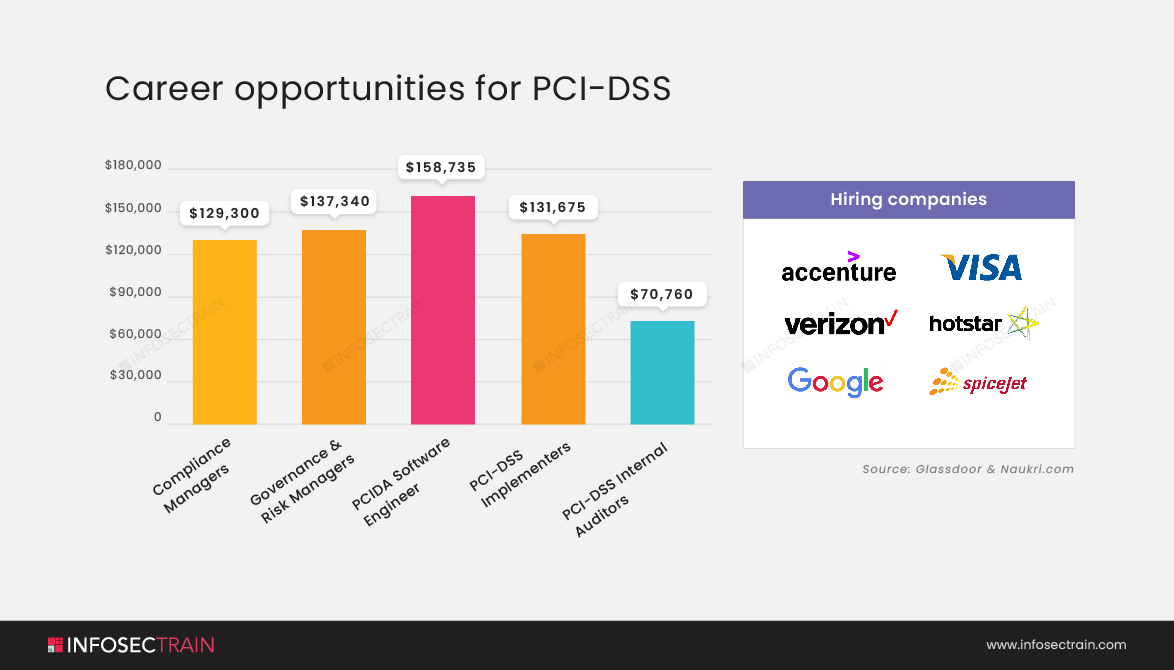Payment Card Industry Data Security Standard (PCI-DSS) Training in Houston
 Read Reviews
Read Reviews
The PCI-DSS, Payment Card Industry Data Security Standard, is a widely recognized and accepted information security standard that enables organizations to govern various branded credit cards through card schemes majorly offered. All the card brands have to essentially follow the Standard that is administered and devised by the Payment Card Industry Security Standards Council. PCI DSS is applicable to all the companies that store, process, or transmit data and information of the cardholders. This global mandate standard also applies to all major central banks worldwide.



 5th Sep: Weekend
5th Sep: Weekend 





 Course and training were excellent. The Training methodology incorporated by InfoSec Train helped me to understand the concepts effectively. Looking forward to experiencing more such learning experiences with this team!
Course and training were excellent. The Training methodology incorporated by InfoSec Train helped me to understand the concepts effectively. Looking forward to experiencing more such learning experiences with this team! 







 1800-843-7890 (India)
1800-843-7890 (India) 
